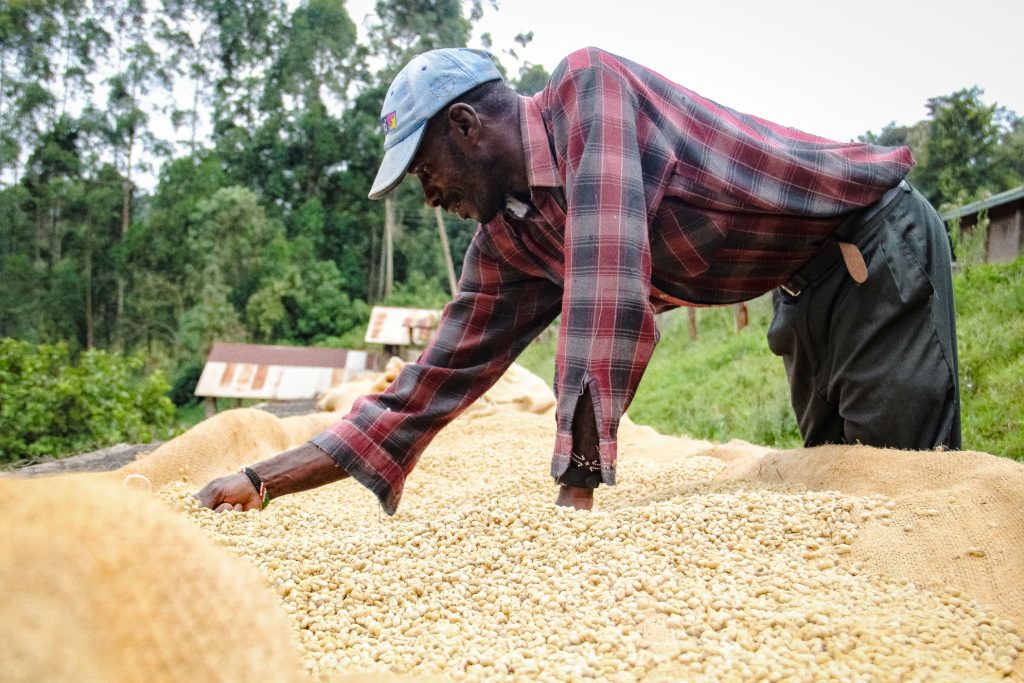Mumwe Mahiga
Kenya
Honeysuckle • Meyer Lemon • Graham Cracker
Producer: Othaya Co-op
Farm: Smallholder
Altitude: 1800m
Variety: SL28
Process: Double Washed, Double Fermented
Blockchain Sourcing Transparency: coming soon

Quick Notes:
QUALITY: The 0xCoffee 1:1 series is comprised of selections from the top 0.5% of coffees in the world. These are exceedingly high quality offerings including rare varieties, experimental processes, award winners and top scorers on the cupping table. Many are truly 1:1 with only a single 60kg sack available worldwide, making them among the rarest coffees on Earth.
PEOPLE:
Kenya’s coffee sector is dominated by a cooperative system of production whose members vote on representation, marketing, and milling contracts for their coffee, as well as profit allocation.
Othaya Farmers Cooperative Society, the umbrella organization that includes Mahiga Mill, is one of Kenya’s larger societies with 19 different mills and more than 14,000 farmer members across the southern Nyeri region. The Mahiga Mill has 400 members actively harvesting and delivering to the processing center. The factory’s total parchment output this past harvest was 152,000 kgs, meaning the average member of Mahiga is farming enough coffee fruit for roughly 11 30kg units of exportable green. Mahiga Factory’s chairman is Newton Mugai, one of the founding directors of Kenya Cooperative Coffee Exporters (KCCE).
ENVIRONMENT: Mt. Kenya, at the helm of Kenya’s Central Province, is the second tallest peak on the continent of Africa and a commanding natural presence. The mountain itself is a single point inside a vast and surreal thicket of ascending national forest and active game protection communities. The central counties of Kenya extend from the center of the national park like six irregular pie slices, with their points meeting at the peak of the mountain. Many believe the best coffees in Kenya, often the world, are crafted in the wet, high elevation communities with mineral-rich soil that reside just along the lower edge of these forests. Nyeri is perhaps the most well-known of these central counties.
Double Washed, Double Fermented
Mahiga typically ferments twice: once under water for 12 hours, and again under fresh water for another 12-36 hours, with a washing in between. Double fermentation is very rare in Kenya, and, based on our experience, the technique is strongly correlated with excellent cleanliness and clarity in the cup, and Mahiga’s lots are some of the best and most balanced Kenyas we’ve tasted all year.
After fermentation is complete, the clean parchment soaks for 16 hours, again in fresh water, before it is sorted by density and brought to the tables to dry, which typically takes two weeks. After drying is complete the coffee is stored on site and eventually delivered to the Othaya dry mill for grading and a final density sort. The established milling and sorting by grade, or bean size, is a longstanding tradition and positions Kenya coffees well for roasters by tightly controlling the physical preparation and creating a diversity of profiles from a single processing batch.